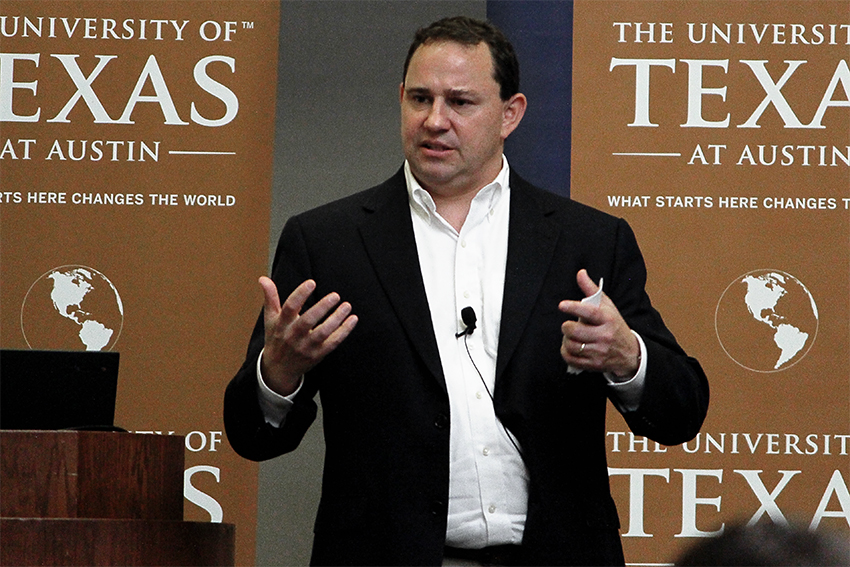Day one of UT Energy Week, Natural Resources Day, featured an open mic about President Donald Trump’s energy policies.
During this open mic, Michael Webber, UT Austin Energy Institute Deputy Director, answered questions from the audience, which consisted of professors, students and people interested in the future of the environment and energy policy.
Webber began by addressing the future of nuclear energy under the Trump administration.
Nuclear energy is the use of nuclear reactions to generate heat, primarily in steam turbines for electric power. Webber said historically, nuclear energy has had trouble succeeding in economic markets without government intervention. He added that disagreements about this intervention have caused partisan debate.
However, nuclear energy could potentially thrive under the Trump administration, as long as the United States discovers a way to responsibly store or reprocess nuclear waste, according to Webber.
“Maybe Trump is different enough and unconventional enough that he can get us on a whole new decision around nuclear where we manage our waste through reprocessing (it) and not just storing (it),” Webber said.
While Trump’s overall environmental policies seem to be erratic and lack policy details, the new president is certain about attempting to resurge the coal industry, Webber said.
In recent years, the coal industry has declined significantly because of competition from other energy sources, including natural gas. According to the Scientific American, natural gas is predicted to replace coal as America’s leading fuel source. Webber said renewable energy sources, which have become viable energy sources, also pose challenges for the economic success of coal.
According to Webber, oil and gas lobbyists may become significant opponents to Trump’s attempts at growing the coal industry. Webber said one way for Trump to save the coal industry is to act as a proponent for coal despite current market forces supporting natural gas and other energy sources.
“(Trump) could issue a mandate for coal,” Webber said. “I think that flies in the face of Republican orthodoxy…and he would definitely bump into oil and gas lobbyists.”
Environmental regulations drive up the cost of coal and natural gas, but these costs are not driven by CO2 regulations, Webber said. According to Webber, the coal industry is already dying with or without CO2 regulations.
“(Certain regulations) aren’t going to roll back as quickly and easily because there is more bipartisan consensus that acid rain is bad and consuming mercury in our kids is bad,” Webber said. “There’s less consensus with (greenhouse gases), but there’s more consensus with heavy metals and precursors to acid rain.”
Another topic Webber addressed was construction of oil pipelines, specifically the Keystone XL pipeline, which Trump issued support for through an executive order last week. Webber said this is another definitive part of Trump’s environmental platform.
The controversial and privately financed Keystone XL pipeline would carry 830,000 barrels of oil each day from Alberta, Canada and from Steele City, Nebraska. Concerns about the project have incited protest efforts at the site of the pipeline.
According to BBC News, the issues include renewed dependence on fossil fuels rather than renewable resources and the pipeline causing chemicals to seep into the groundwater near Native American land and sacred burial grounds.
Though Trump signed the executive order supporting construction of the pipeline, Webber said the program itself still requires financial support for execution. Webber reminded the audience that those who disagree with Trump’s energy policies should exercise their civic duty.
“You have to yell at your local congressperson, and if you talk to them, they are in a better position to keep him in check than you are just tweeting at Trump,” Webber said. “We seem to be interested in entertainment more than news now, but if you’re worried about what’s going on in the world, pay attention to news at the local level—and vote.”















